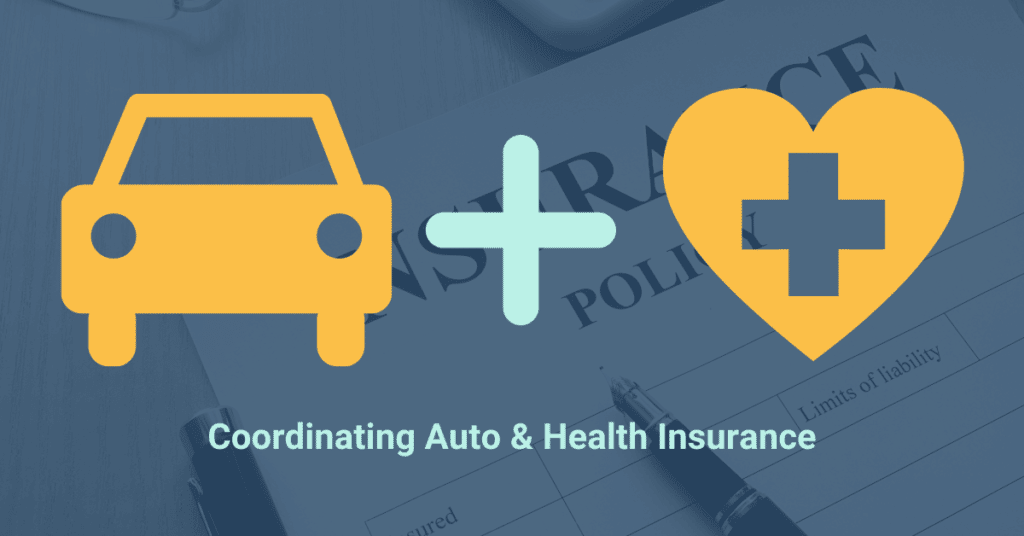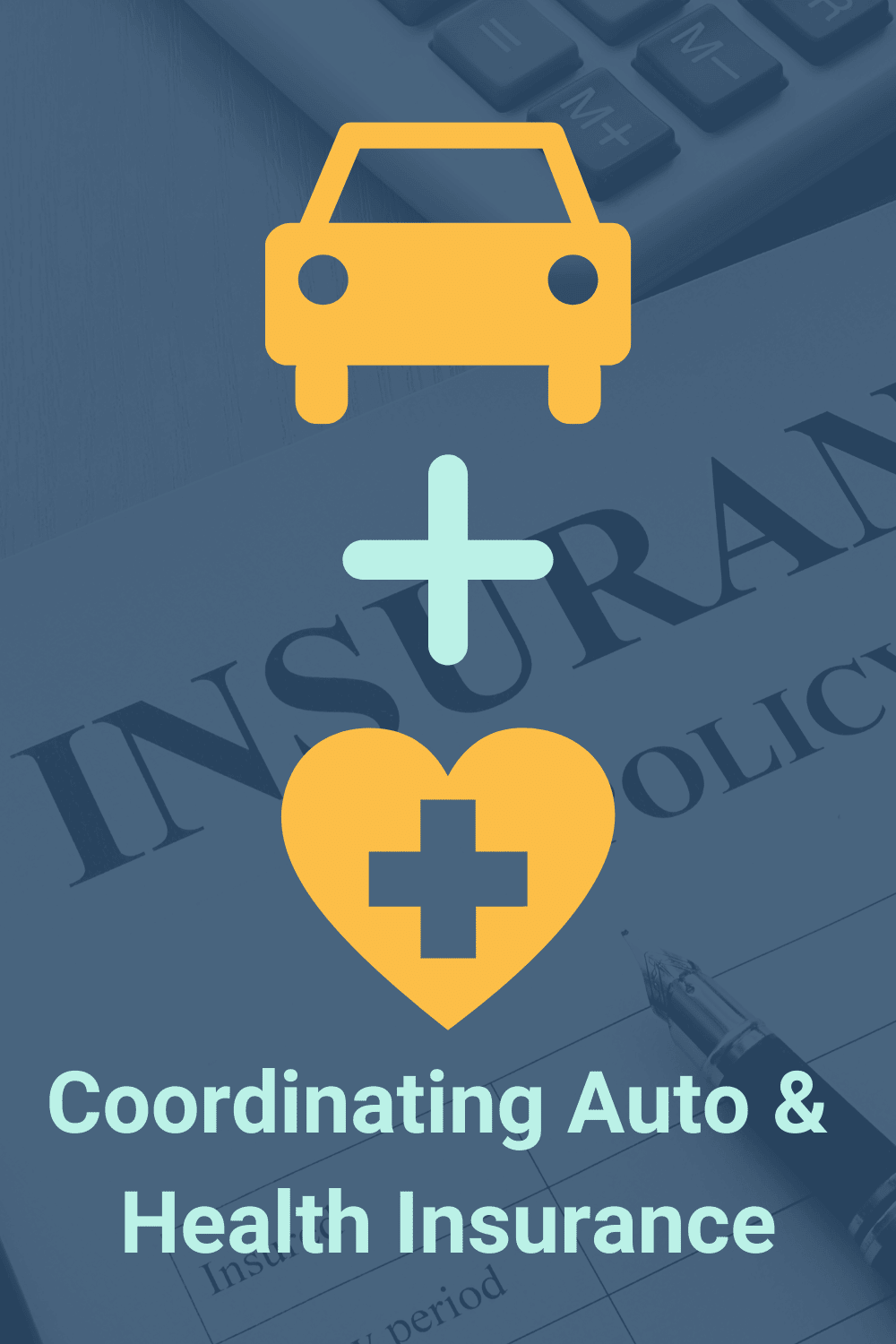Michigan Auto Insurance and Coordination of Benefits Explained

What does Michigan auto insurance and coordination of benefits mean?
In Michigan, coordination of benefits is when a person coordinates their health insurance with their auto insurance so that, in return for a reduced auto insurance premium, the person’s health insurance is the primary payer for car accident-related medical expenses.
No-Fault insurance’s obligation as secondary payer is triggered once the health insurance plan’s coverage has been exhausted.
The law refers to this as an “exclusion” that is “reasonably related to other health and accident coverage.” (MCL 500.3109a(1))
What are uncoordinated No-Fault insurance benefits?
When a driver chooses “uncoordinated benefits,” he or she has chosen to keep No-Fault as the primary payer for his or her car accident-related medical expenses. That means that the driver’s No-Fault insurance will pay for all of his or her accident-related medical care, treatment and services, even if the cost for those benefits could be covered by the accident victim’s health insurance provider.
Coordinated vs uncoordinated No-Fault benefits
The important distinguishing factors between coordinated and uncoordinated No-Fault benefits that drivers must be aware of include:
- Who pays first for a car accident victim’s medical expenses? With coordinated benefits, health insurance is the primary payer. With uncoordinated benefits, No-Fault is the primary payer.
- Is coordinated coverage optional? Coordinated coverage of No-Fault and health insurance benefits is optional for drivers. It’s also optional for Michigan auto insurance companies because the law does not require that they offer coordinated coverage as an option to their insureds. If a driver elects to not have coordinated coverage, then – by default – he or she will have uncoordinated coverage.
- Is one cheaper than the other? Yes. Drivers who choose to coordinate coverage are guaranteed “a reduced premium.” Of course, the price reduction comes with its own cost because they will also be getting reduced coverage in the event they need medical care if they’re injured in a car accident.
Do we recommend coordinated vs uncoordinated benefits?
As auto accident attorneys, we always recommend that drivers choose uncoordinated No-Fault benefits.
We also recommend that drivers choose unlimited No-Fault PIP medical benefits coverage in their uncoordinated auto insurance policy.
It is important to choose both uncoordinated No-Fault and unlimited No-Fault PIP because:
- No-Fault provides coverage of all medical care and treatment that is “reasonably necessary” for a car accident victim’s care, recovery or rehabilitation; and,
- Health insurance plans may contain auto exclusions (meaning they don’t provide coverage for car accident-related injuries); may fail to cover the treatment, care and services needed by car accident victims; may limit such treatment, care and services in ways that No-Fault does not; and/or may involve managed care or HMOs which require preauthorization and which prohibit victims from seeking care from a doctor of their choice.
When must Michigan No-Fault auto insurance pay under coordination of benefits?
Michigan auto insurance law provides that a car accident victim with coordinated coverage must make “reasonable efforts” to seek payment of accident-related medical expenses through his or her health insurance company before the victim’s No-Fault auto insurance company is obligated to pay.
In St. John Macomb Oakland Hospital v. State Farm Mutual Automobile Insurance Company, the Michigan Court of Appeals made clear that “reasonable efforts” did not include “appeal[ing] a health insurer’s medical necessity determination.”
Can I coordinate my Michigan auto insurance with Medicare?
No. With regards to Michigan auto insurance and coordination of benefits, a driver cannot coordinate his or her No-Fault coverage with Medicare. The federal law known as the “Medicare Secondary Payer” rule prohibits drivers from making Medicare the “primary” payer for car accident-related medical expenses.
Can I coordinate my Michigan auto insurance with Medicaid?
No. With regards to Michigan auto insurance and coordination of benefits, a driver cannot coordinate his or her No-Fault coverage with Medicaid. As with the “Medicare Secondary Payer” rule, federal law also prohibits a driver from making Medicaid the “primary” payer for car accident-related medical expenses.
Can I coordinate if I have employer-provided health insurance?
According to Michigan No-Fault auto insurance law, you can coordinate so long as your employer’s health insurance plan is not a self-funded ERISA plan with an unambiguous coordination of benefits clause that clearly states that the plan will not be “primary” for an employee’s car accident-related medical expenses.
How does ERISA affect coordination of benefits of Michigan No-Fault auto insurance?
As stated above, drivers cannot coordinate their Michigan No-Fault auto insurnace coverage with an employer-provider ERISA health insurance plan if the plan is self-funded by the employer and contains an unambiguous coordination of benefits clause.
An unambiguous coordination of benefits clause makes clear that the ERISA plan will not be the primary payer for car accident-related medical expenses where coverage is available through a No-Fault Michigan auto insurance policy.
In the unlikely but possible event that ERISA does pay medical expenses for a car accident victim with coordinated coverage, ERISA can recover the money it paid by putting a lien on a car accident victim’s third-party tort recovery for pain and suffering. When ERISA does recover money it has paid from a tort settlement, the accident victim cannot be “reimbursed” from his or her No-Fault insurance company.
Injured in a car accident in Michigan and have questions about No-Fault auto insurance and coordination of benefits? Call now!
If you were injured in a car accident in Michigan and you have questions about No-Fault auto insurance and coordination of benefits, call now (855) 781-7747 for a free consultation with one of our experienced car accident lawyers. There is no cost or obligation. You can also visit our contact page or use the chat feature on our website.
Michigan Auto Law is Michigan’s largest and most successful law firm that specializes exclusively in helping people who have been injured in auto accidents.
Our secret? Our car accident lawyers deliberately handle fewer cases than other personal injury law firms. This allows us to focus more time and attention on our cases.
Unlike other law firms, our attorneys are never too busy to promptly return phone calls and answer questions.
We have more than 2,000 5-Star Reviews that reflect this care and attention to detail.
More importantly, this client-focused approach leads to better and faster settlements for our clients. Michigan Auto Law has recovered more million-dollar settlements and trial verdicts for motor vehicle accidents than any other lawyer or law firm in Michigan. We’ve also recovered the highest ever reported truck accident and car accident settlement in the state.
Call now so we can start making a real difference for you.






